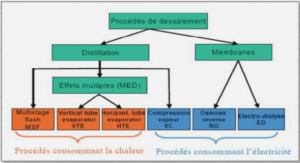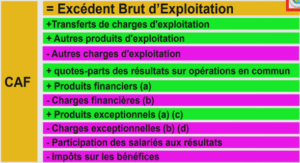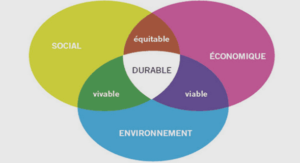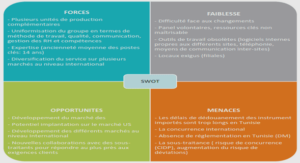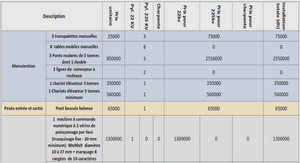I- MEETING PEOPLE
II- TELEPHONING
III- COMPANIES
IV- REPORTING
V- SOCIALIZING
VI- MEETINGS
VII- MAKING ARRANGMENTS
VIII- DESCRIBING TRENDS
IX- BUSINESS TRAVEL
X- READING TEXTS
BUSINESS GLOSSARY
• ENGLISH/FRENCH
• FRENCH/ENGLISH
LIST OF USUAL IRREGULAR VERBS
BIBLIOGRAPHY
Practice with a colleague. You are in their office and you want to:
– use their phone
– smoke
– look at their copy of the production plan
– copy a file on their computer
– borrow their copy of the Economist
– borrow their car
4. who makes these request: a customer ( C) or supplier ( S)?
– can I place an order?
– May I have your name and company name?
– Could you tell me the delivery address?
– Can you deliver next Monday?
– Could I have an address for the invoice?
– Could you tell me how much it will cost?
– May I have a discount?
– Would you confirm this order in writing?
Work with a partner. Make up a conversation between a customer and a supplier. Use as many request as you can.
5. work in pairs. One person sell computers. The other is a foreign customer who phones.
Answer his inquiries about your computer the NC-200. he will ask about.
• your prices
• delivery times
• the guarantee
• discounts
• your terms of payment
Invent your answers. You can agree to or refuse his request.
Speaking:
Sit back to back with a partner and act out this telephone calls.
Call :
Your company’s new price list are still at the printers. You expect them to arrive today. A customer calls with a request. Write down the details.
Telephone: language
NB: This section is very suitable for offshoring dies:
Introduction
A lot of people find it difficult to make phone calls in a foreign language – and that’s understandable.
You can’t see the person you are talking to, their voice might be unclear, and you might find it difficult to find the right words.
Multi-word verbs
One thing you can do to improve your telephone skills is to learn some of the multi-word verbs that are commonly used in telephone conversations. Most of them are featured in this module. Hold on
means ‘wait’ – and hang on means ‘wait’ too. Be careful not to confuse hang on with hang up! Hang up means ‘finish the call by breaking the connection’ – in other words: ‘put the phone down.’
Another phrasal verb with the same meaning as hang up is ring off. The opposite of hang up / ring off is ring up – if you ring somebody up, you make a phone call. And if you pick up the phone, (or pick the phone up) you answer a call when the phone rings.
« Hang on a second… »
If you are talking to a receptionist, secretary or switchboard operator, they may ask you to hang on while they put you through – put through means to connect your call to another telephone. With this
verb, the object (you, me, him, her etc.) goes in the middle of the verb: put you through.
But if you can’t get through to (contact on the phone) the person you want to talk to, you might be able to leave a message asking them to call you back. Call back means to return a phone call – and if you use an object (you, me, him, her etc.), it goes in the middle of the verb: call you back.
Level of formality
Another thing to think about when talking on the telephone is formality. It’s important to use the right level of formality – if you are too formal, people might find it difficult to feel comfortable when they talk to you. On the other hand, if you are too informal, people might think you are rude!
Generally speaking, if you are talking to someone in a business context, you should use could, can, may or would when you make a request: ‘Could I speak to Jason Roberts, please?’ ‘Can I take a message?’ ‘Would next Wednesday be okay?’. You should also use please and thank you or thanks very much whenever you ask for, or receive, help or information.
It’s important to show politeness by using words like would, could, please, thank you etc. But it’s also okay to use some of the features of informal/spoken English – short forms, phrasal verbs and words like okay and bye – in other words – everyday English! So phrases like I’m off to a conference…, no problem, bye! and hang on a moment and I’ll put you through are perfectly acceptable, as long as the overall tone of the conversation is polite.
One last tip – it’s better to ask for help or clarification when you’re having a telephone conversation, than to pretend you understand something that you didn’t. It’s perfectly acceptable to use phrases like ‘Could you repeat that, please?’ ‘Could you speak a little more slowly, please?’ and ‘would you mind spelling that for me please?’ Using phrases like these will help make sure that you have a successful phone call, and may save you from lots of problems later on. You could always say that the line’s very bad today if you can’t hear very well. And it’s also a good idea to practise words, phrases and vocabulary before you make the call!
Check understanding
Check your understanding by reading the scripts below:
Michelle: Hello, you’ve reached the marketing department. How can I help?
Male: Yes can I speak to Rosalind Wilson, please?
Michelle: Who’s calling please?
Male: It’s Richard Davies here
Michelle: Certainly. Please hold and I’ll put you through.
Male: Thank you.
Michelle: Hello, marketing. How can I help?
Male: Could I speak to Jason Roberts please?
Michelle: Certainly. Who shall I say is calling?
Male: My name’s Mike Andrews.
Michelle: Just a second – I’ll see if he’s in. Hello, Jason, I’ve got Mike Andrews on the phone for you
… OK – I’ll put him through. Hang on a moment; I’m just putting you through.
…….
Vocabulaire commercial-anglais (1.43 MB) (Cours PDF)

